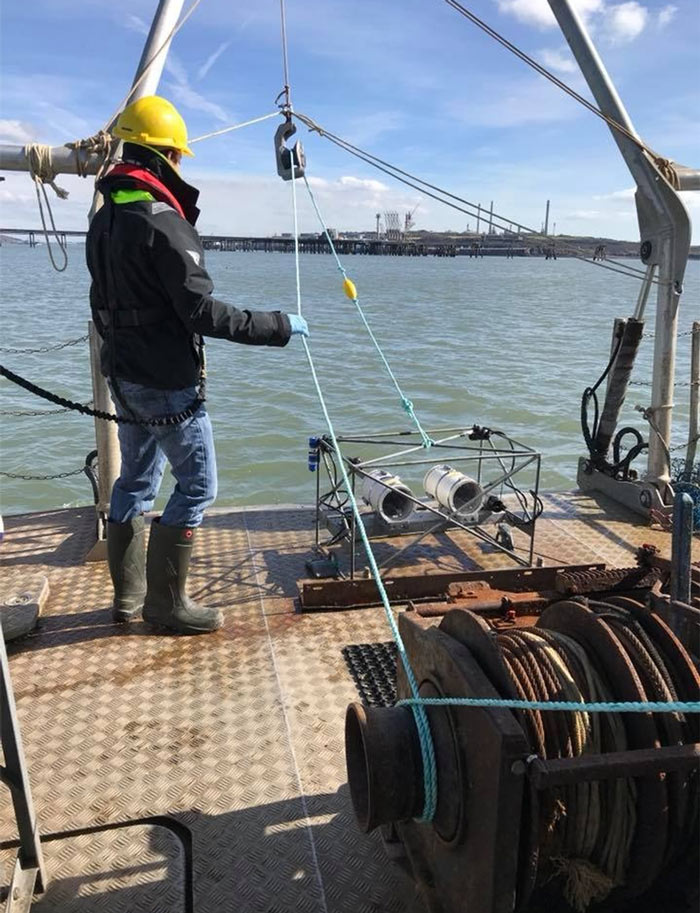
Sat in lockdown it’s hard not to reflect and think about life, and 2020 actually marks ten years since I left the small farm in the Welsh countryside to pursue my career. So, sit back and enjoy the career rollercoaster that has been the last ten years!
It all started off at Bangor University where I studied Marine Biology. I’d wanted to do this for as long as I remember, I have always had a fascination with sharks, whales, fish, you know, the normal stuff for a teenager to be obsessed with… Even this had a rocky start however, I didn’t get the A-level grades I had hoped for, so had to make my case to the course director to let me in, which thankfully they did! August before heading to Bangor my welcome pack came with a prompt to sign into your IT account ahead of time to make sure it works… it didn’t. Several hours on the phone to various people, I wasn’t registered to go to university. Disaster. Another plea to the course director, who thankfully remember me, and they squeezed me in, and I got the last accommodation room (in a building which was demolished the next year!). Smooth sailing and I’ve not even left home yet. Though very hard work the next few years went off without a hitch, I even had time to work part time jobs at McDonalds, a pet shop, a bakery, as a cleaner, a café, pond maintenance and even pest control!

I passed BSc (Hons) with a 2.1 but couldn’t find any jobs that I liked, so I made the decision to stay at Bangor and do their Marine Environmental Protection MSc. I worked 7 days a week for the summer of 2013 to pay for it at the pet shop, pest control and one of my favourite places I’ve worked Anglesey Sea Zoo. Working at the Sea Zoo was excellent, it was the first time I’d really had an opportunity to get close and familiar with UK species. What I learnt there still comes in useful today as much of my work involves fish ID. In a flash the summer was up, and I went back to only working at the pet shop and went into my MSc. I thought BSc was hard work, the MSc was intense! I worked five days a week at uni, and two to earn money, with only Christmas and Easter off! Nevertheless, I passed and was released out to the world!
What’s the natural career for someone who’s just passed an MSc in environmental science? Marine Mammal Trainer, yep, I became a seal trainer, at the Rhyl Seaquarium. Maybe not a totally natural flow but it was a chance to work (£££!) with animals I really loved, in environment that promotes education and conservation of marine species. Another place that will remain close to my heart, not just as my first ‘proper’ job but for the opportunity to work close with fish and seals and learn about them in such a personal manner. All good things come to an end and it was time for me to move on, I became the senior aquarist at Skegness Aquarium in Lincolnshire, another fantastic opportunity to work with tropical species with a tank large enough to dive in! After several months I worked my way to the curator position; now responsible for the operation of the building! I learnt so many skills working in in aquaria, from plumbing to breeding sharks and seahorses. These positions gave me a chance to work so closely with a topic that had been a hobby for me for so many years (did I mention I has 20 fish tanks in my mums shed?) and allowed me to meet so many great people.
I decided however that I wanted to work in a more active conservation role, using my scientific background. This led me back to the city I was born, Swansea! I became the Benthic Marine Biology Technician on the SEACAMS2 project. SEACAMS2 was an excellent opportunity as it is a multi-project project allowing me to experience an array of marine science disciplines, the primary projects I worked on were:

• Seagrass Restoration Methodology
• Methodology of Baited Remote Under Water Video Systems (BRUVS) in low visibility
• Acoustic camera use (ARIS)
• Benthic species settlement on artificial structures
• Mapping of fish spawning grounds and fish population dynamics
The key project was the seagrass restoration project! I was part of the team that developed a successful biodegradable seagrass restoration method. This in turn (along with obtaining my Dive Master qualification) gave me the experience to work as the technical lead on the Seagrass Ocean Rescue project (Supported by Project Seagrass, Sky Ocean Rescue and WWF).

Though I do miss working at aquariums, nothing is more satisfying than stepping back and looking at the work that myself and the team I’m part of have achieved over the last year. We collected and planted 750,000 seagrass seeds, covering an area of 1.5Ha (about a rugby pitch and a half!).
I’d like to thank my family, particularly my parents, for supporting me throughout, and still doing so! Also all my colleagues past and present, I know without such amazing people around me I would not have been able to get where I am today.

